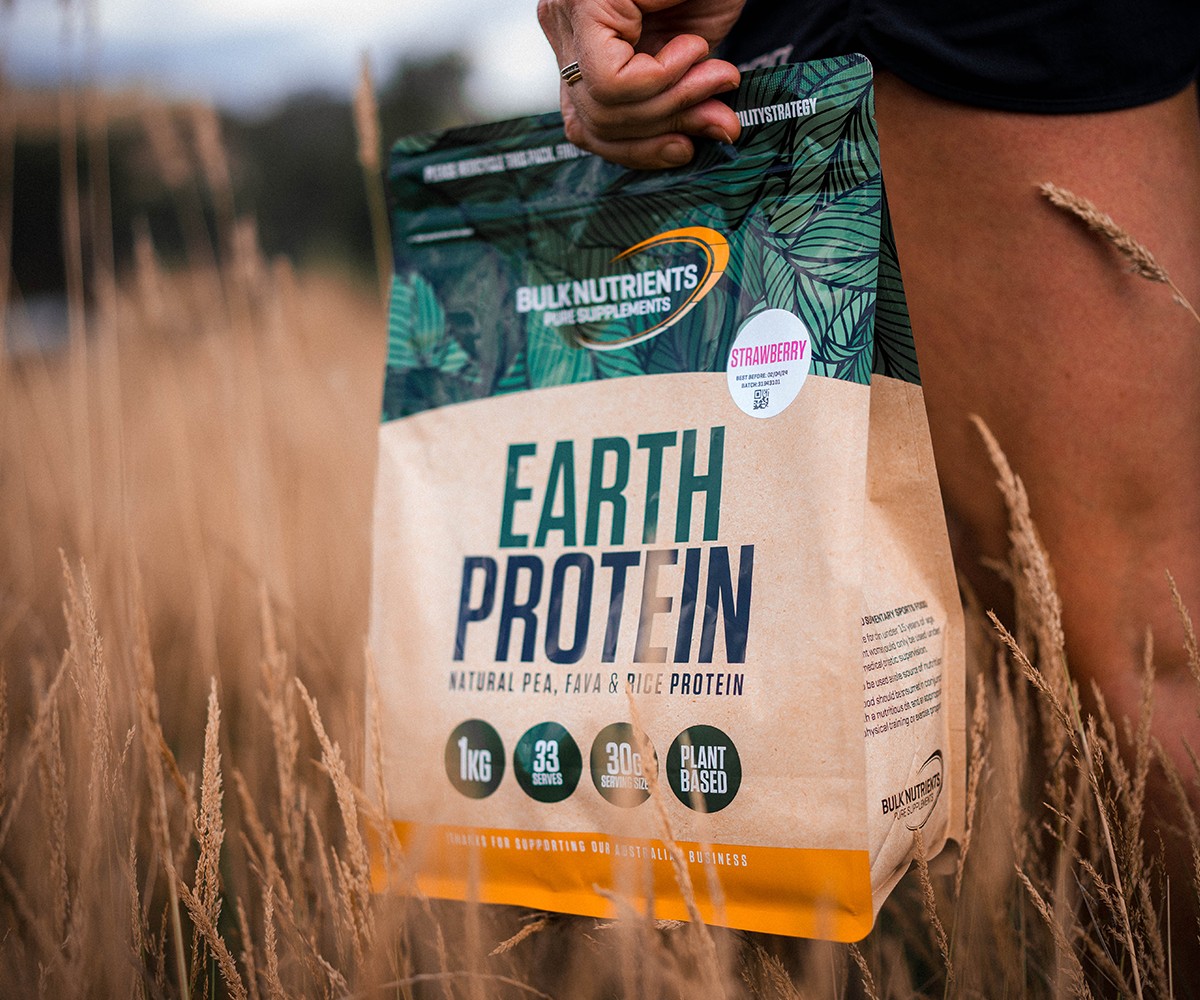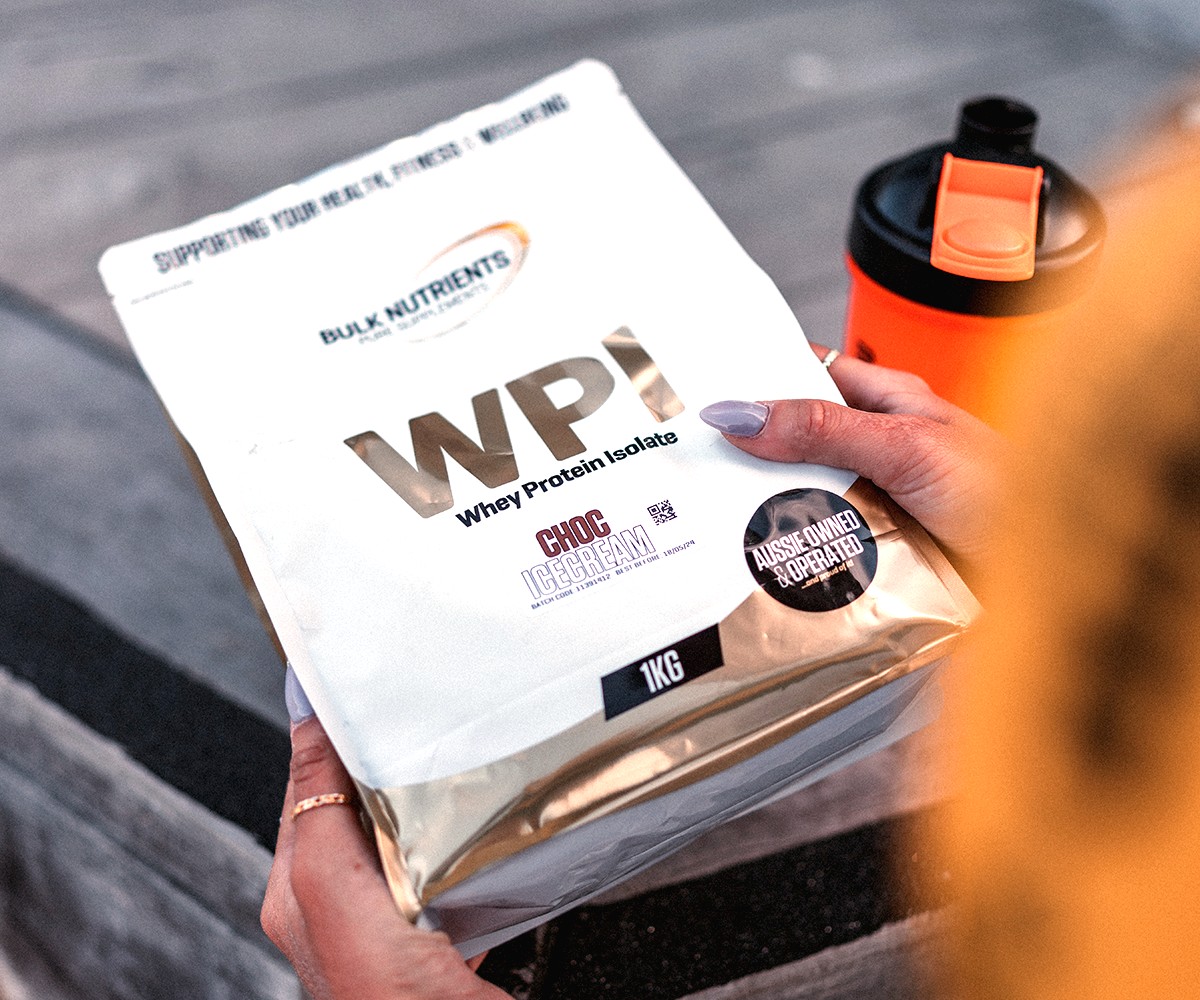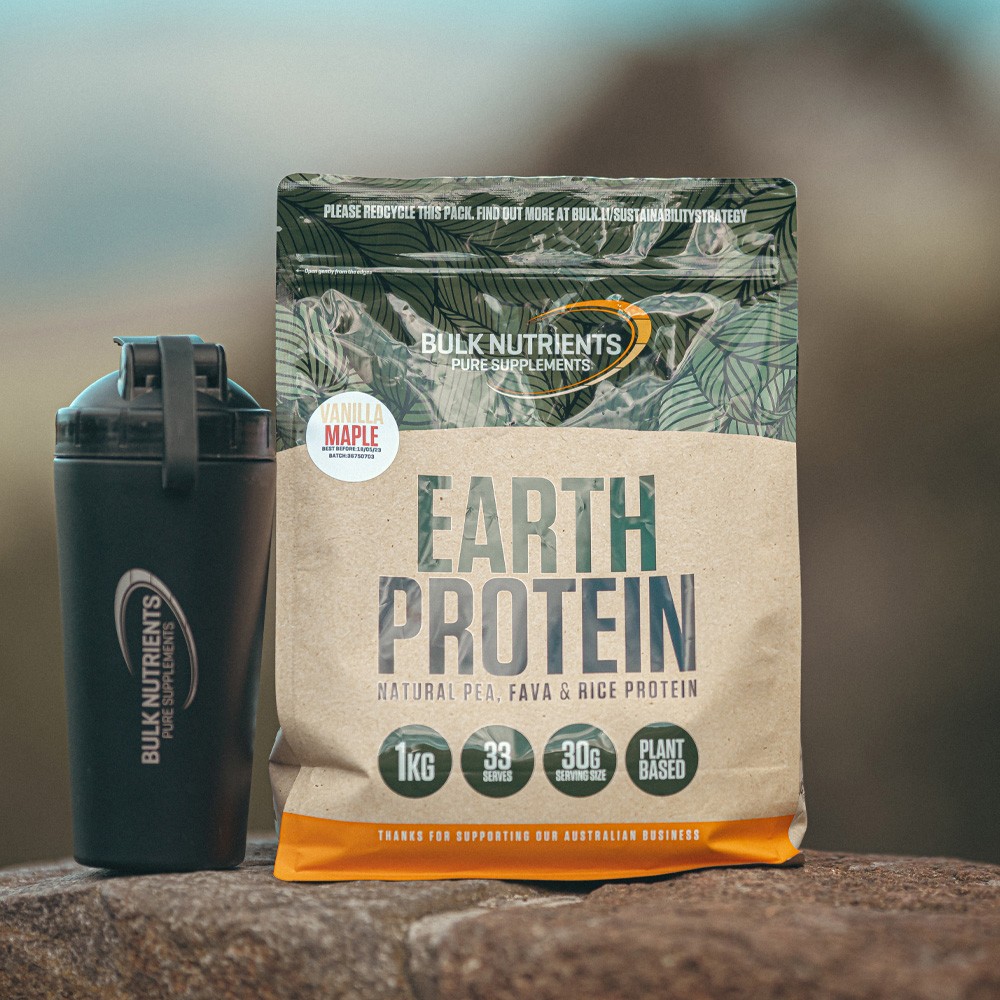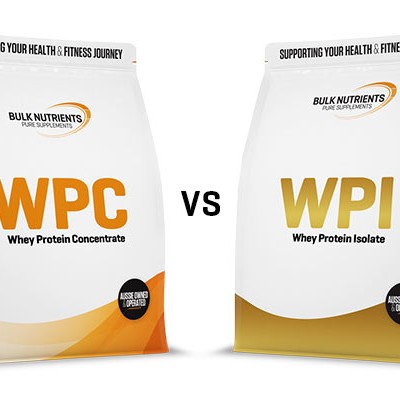
The Ultimate Guide to Bulk Nutrients' New Protein Water!
Posted by Ebony Abblitt
Estimated reading time: 6 minutes

Whey protein vs plant protein: these two sources of protein have long been the subject of debate among fitness enthusiasts and health-conscious individuals.
As more people adopt a plant-based lifestyle or simply look for alternative protein sources, it's important to understand the differences and benefits of each.
In this guide, we’ll take a look at the key distinctions between vegan protein powder and whey, addressing common questions such as "is plant protein better than whey protein?" and "is whey protein vegan?"
To help you make an informed decision about which protein source is best for your needs and lifestyle, we'll dive into the specifics of each type of protein, discussing their amino acid profiles, digestibility, and potential health benefits.
By the end, you'll have a better understanding of the whey protein vs. plant protein debate, empowering you to choose the right supplement for you!
Whey protein is derived from milk and is a complete protein source, containing all nine essential amino acids your body needs to function properly.
It is particularly rich in branched-chain amino acids (BCAAs), which play a crucial role in muscle growth and repair [1].
So, if you’re wondering if whey protein powder is vegan, the answer is no: Because whey protein powder is derived from milk, it isn’t suitable for vegans.
But for our vegan friends, no need to worry! There are a range of plant-based proteins that will suit your diet and give you that muscle-building boost you’re looking for.

Plant protein, on the other hand, comes from various sources such as peas, rice, soy and earth (pea, fava bean & rice blend).
While some plant proteins are complete, others may be lacking in one or more essential amino acids.
However, by combining different plant protein sources, it's possible to create a complete amino acid profile and get the same benefits as whey protein [2].

Unfortunately, there’s no one-size-fits-all answer to this question.
When it comes to whey protein powder vs plant protein powder, the best option for you will be the one that meets your dietary needs, lifestyle and goals.
Let’s take a look at the three most important factors that contribute to a protein powder’s efficacy.
Whey protein is generally considered to be more easily digestible than plant protein.
This is because whey protein has a higher biological value (BV) than most plant proteins, meaning your body can use it more efficiently [3].
However, some plant proteins, like soy, have a BV comparable to whey, making them a viable alternative for those seeking easily digestible plant-based options [4].

Whey protein has been widely researched and is known for its ability to promote muscle growth, support recovery, and aid in weight management [5].
It also contains bioactive peptides that can support immune function and promote overall health [6].
Plant protein offers numerous health benefits as well.
Research suggests that consuming plant-based proteins may lower the risk of heart disease, support weight management, and contribute to overall health due to their high fibre and nutrient content [7].
Additionally, plant proteins are often hypoallergenic and suitable for those with lactose intolerance or dairy allergies.

One aspect that may influence your decision is the environmental impact of each protein source.
Producing plant protein typically requires fewer resources, such as water and land, and generates fewer greenhouse gas emissions compared to whey protein [8].
As a result, opting for plant protein may be more sustainable and environmentally friendly than whey protein.
Ultimately, the choice between whey vs plant protein depends on your individual needs, preferences, and dietary restrictions.
Both sources can provide the necessary amino acids, support muscle growth, and offer health benefits.
If you’re lactose intolerant, vegan, or simply seeking a more sustainable option, plant protein may be the better choice for you.
However, if you prioritise quick digestibility and a high biological value, whey protein may be more suitable.
Regardless of your choice, it's essential to select a high-quality supplement and ensure you consume enough protein to support your training and recovery goals.
Ready to incorporate protein powder into your diet? Explore our range of whey and plant proteins.

Meet Mason! He's on the Marketing Team here at Bulk Nutrients and is an amateur basketball player who loves the game.
He's tried many supplements to help him on the court and in general health.

Posted by Ebony Abblitt
Estimated reading time: 6 minutes

Posted by Mason Brezinscak
Estimated reading time: 8 minutes

Posted by Dayne Hudson
Estimated reading time: 6 minutes
With over 700 recipes and articles, the Bulk Nutrients Blog has something for everyone! Find a new workout, meet our ambassadors or take a deep dive into our products today.
We're an Australian manufacturer and supplier of high quality sports supplements.
Operating since 2008, Bulk Nutrients has become one of the premier Australian brands to supply nutritional products to top level athletes, competitors and those on a journey to a healthier lifestyle.
One thing that sets Bulk Nutrients apart is that we love to talk to our customers!
Whether you need product advice, help with the website or need a change made to your order... call us on +61 3 6266 4725.
If you prefer email you can email us day or night at info@bulknutrients.com.au
For online chat, hit the 'Chat' button in the bottom right hand corner of your screen and you'll be connected to one of our lovely customer service team.
Or if you'd like to get in touch through our online contact form, that's cool too!
Terms & ConditionsSustainability StrategyPrivacy PolicyPayment InformationSitemap
All prices are in Australian dollars (AUD) and include GST unless otherwise stated.
All content copyright © Bulk Nutrients 2008 - 2024